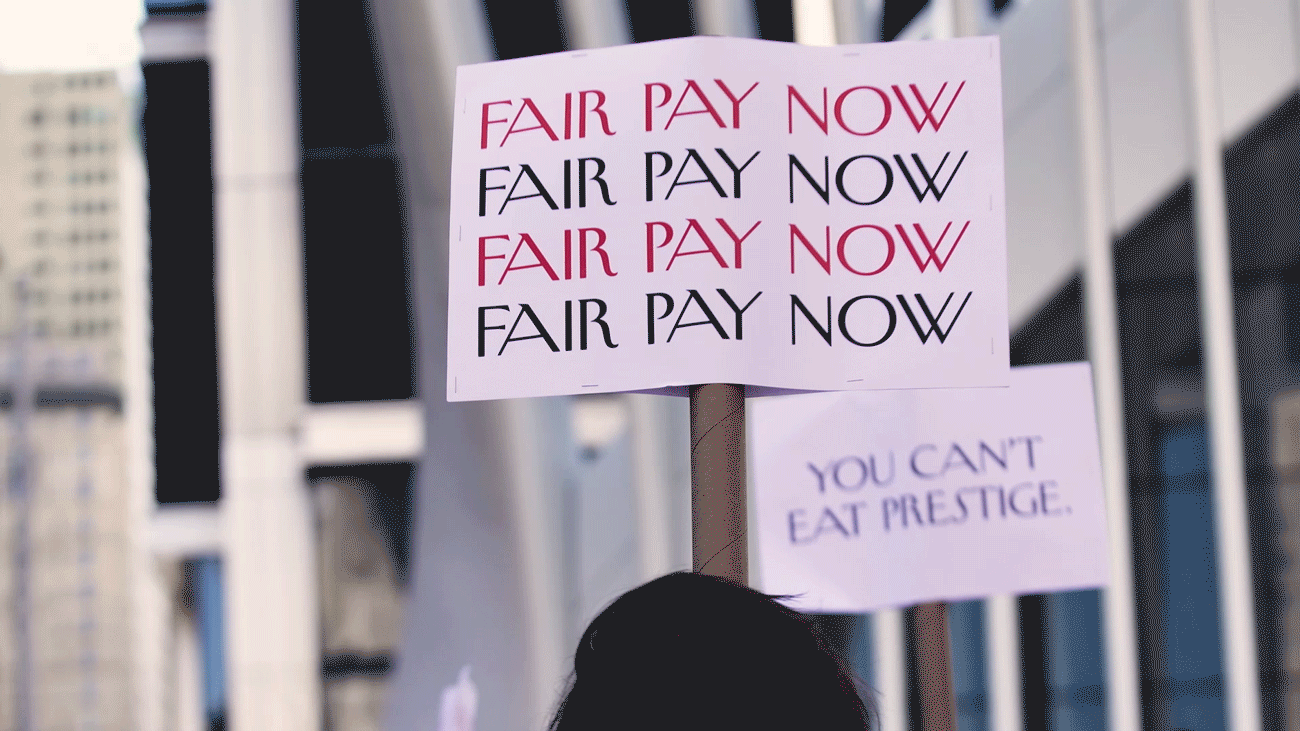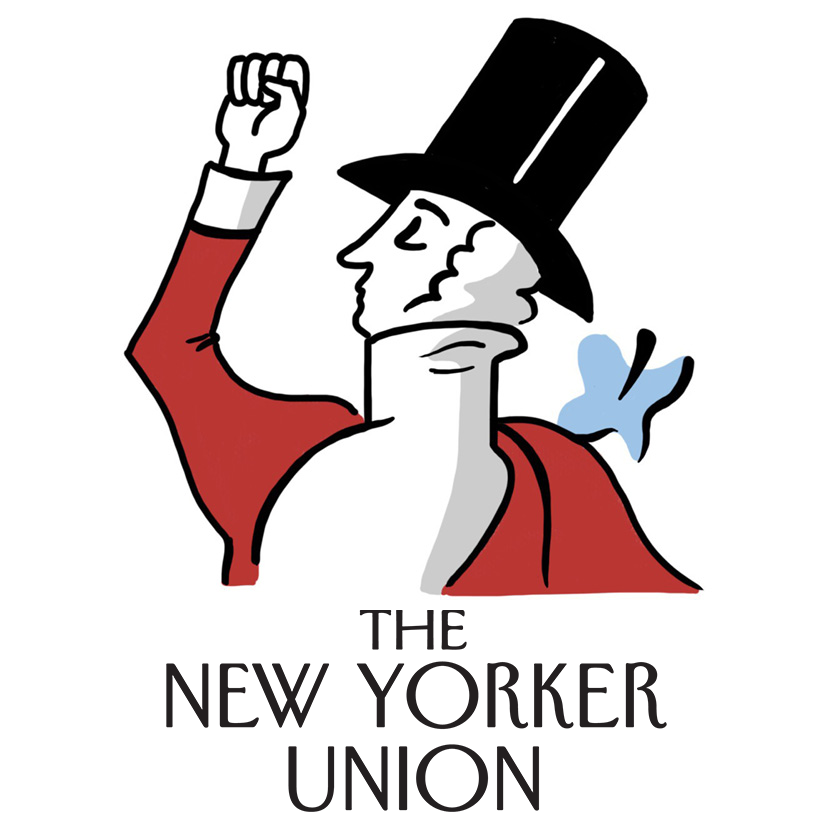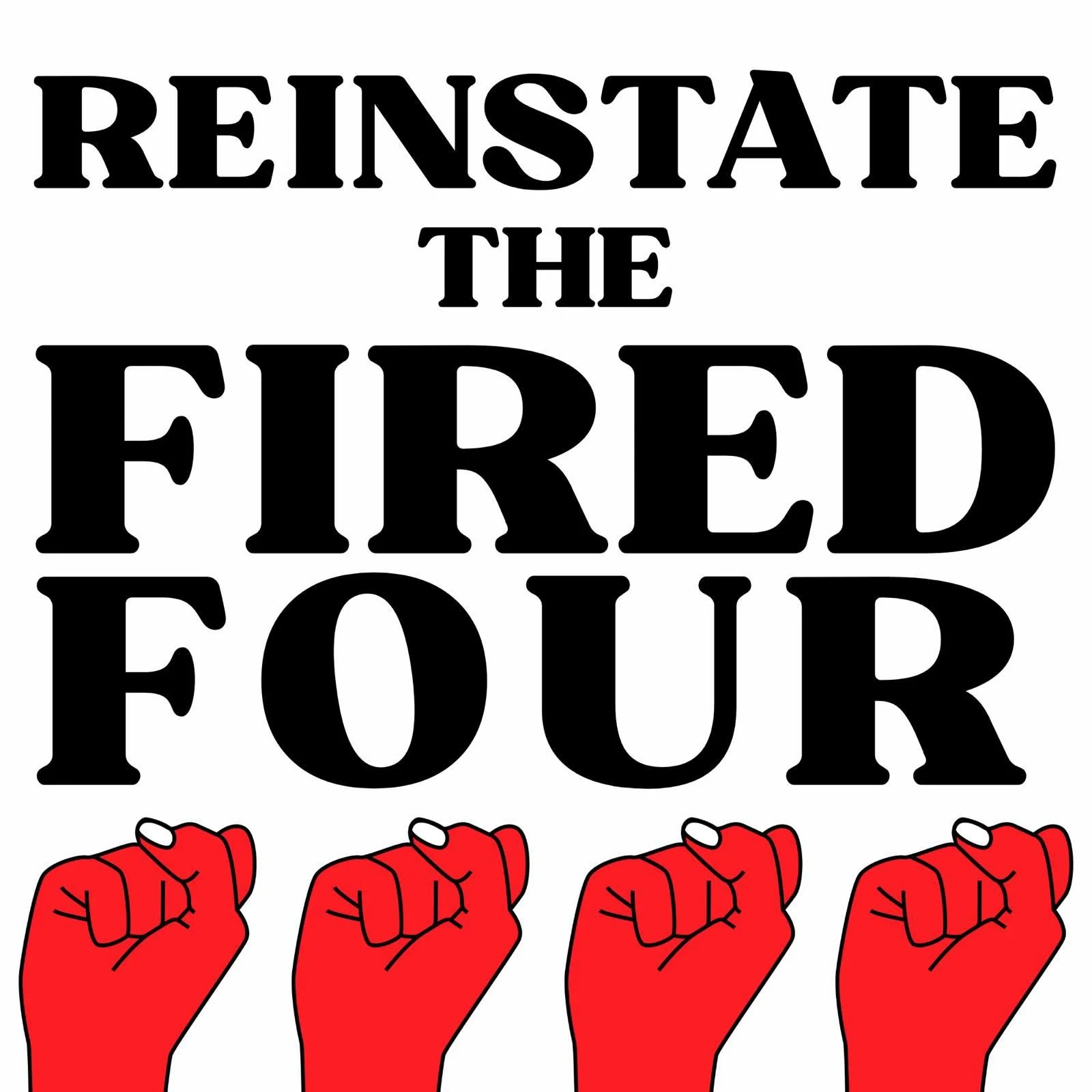
The New Yorker Union
Stop Union Busting
Tell Condé Nast to
Last week, Condé Nast illegally fired four union organizers who asked company execs to explain the downsizing of Teen Vogue and continued layoffs, including our colleague, senior fact checker Jasper Lo. The company’s actions are in direct violation of our contracts, of labor law, and of basic decency.
Click the button below to sign our petition demanding the reinstatement of the Fired Four, and an end to union busting at Condé Nast:
Read about our historic successor agreement.
In 2021, The New Yorker Union secured its first historic collective-bargaining agreement for its members, boosting wages and improving worker protections across the magazine. That contract expired in June 2024. After six months of bargaining, the New Yorker Union unanimously ratified a robust successor agreement that builds on the legacy of our first contract.
Throughout the bargaining process, our members were united. We worked together, tirelessly, building to a credible and unanimous strike threat. We thank those who have stood with us throughout this process, including staff and contributing writers, whose support in the final days of these negotiations were critical in achieving this contract.
Read about our second-contract wins in The Hollywood Reporter.
It seems The New Yorker Festival will be picket-free this year… The deal arrives a little over a week since The New Yorker Union threatened a strike in advance of the publication’s annual festival, which is scheduled to take place between Oct. 25 and 27.
Learn more about the gains we made with our first contract below.
-
June 16, 2021
After thirty-one months of negotiations and a strike vote, we’re proud to announce that we have finally reached an agreement with management. The deal we’ve reached, which includes enormous material gains for our members, will lay a strong foundation for the future of both our union and The New Yorker. Here are some of our biggest victories:
Wage increases of more than 10% for at least half of our members, and of up to 63% for some, along with thousands of dollars of additional salary increases for many longer-serving employees (with pay adjustments retroactive to April 1st).
A $55,000 salary floor, which will increase to $60,000 by the third year of the contract, along with guaranteed annual raises of 2% to 2.5% (increasing over the life of the contract). These raises are also protected by an inflation trigger and could increase depending on inflation metrics.
Protection of work-life balance, with clear parameters around the workday and workweek, and a standardized system for providing comp time or overtime pay to employees who work beyond their regular schedules.
Predictability in health-care costs, with strict limitations on increases annually and over the life of the contract, along with a guarantee to maintain existing benefits.
A clear, consistent system for freelancing that allows employees to take on outside work if it does not conflict with their jobs.
The ability to roll over up to a week of unused vacation time annually, along with additional paid time off for bereavement-related travel and immigration proceedings.
A ban on nondisclosure agreements that would prevent employees who believe they suffered workplace discrimination or harassment from speaking about their experiences, along with a contractual right for employees to have Guild representation in investigatory meetings when they raise complaints about harassment (in addition to federally guaranteed Weingarten Rights).
Editorial integrity guidelines giving employees the right to decline paid-advertising assignments.
Job security in the form of a just cause clause, successorship language, enhanced severance for employees laid off out of seniority order, and a coverage and jurisdiction provision that prevents the company from weakening the bargaining unit.
This has been a long, hard fight, but our unity and collective action over the past two and a half years have finally won us a historic contract. We are proud of all the work we’ve done to raise standards at The New Yorker, at Condé Nast, and in our industry for years to come. We’re grateful for all of your effort and support. Thank you!
-
March 26, 2021
The members of the New Yorker Union, Pitchfork Union, and Ars Technica Union have overwhelmingly voted to authorize a strike, with 98% support across our three bargaining units. If and when our bargaining committees call for it, we will walk off the job to demand the contracts we deserve.
Condé Nast has long profited off the exploitation of its workers, but that exploitation ends now. We demand fair and equitable pay—including wage minimums that are in line with industry standards, a humane salary floor for current and future positions, and regular annual increases that keep pace with the ever-rising cost of living. We demand clear paths for professional development, concrete commitments to diversity and inclusion, and a safe and respectful workplace free of harassment. We demand that the company respect our editorial integrity and our need for work-life balance. We demand a future at Condé Nast that works for all of us, not just those at the top.
We are now in our third year of bargaining with Condé Nast, and the company has not negotiated in good faith. From Day One, management has delayed and undermined the bargaining process by refusing to respond to proposals and information requests for months at a time (or at all), and showing up to our sessions late and unprepared. When they do respond to our proposals, they almost always seek to maintain unilateral control and, at best, memorialize the status quo. In some cases, management’s proposals would make the terms and conditions of our employment even worse; currently, they are proposing annual wage increases so small that salaries would not even keep up with the rate of inflation.
As we have said many times at the bargaining table, if the status quo were working, we would not have unionized in the first place. Many of our members have already been egregiously underpaid and exploited for years—some for decades. We have lost far too many talented colleagues to competitors because of management’s failure to support and value their employees. We will not contribute to the lowering of standards in the media industry, and we are disappointed that our managers are so committed to this race to the bottom. We deserve better.
This strike-authorization vote is meant to remind Condé Nast of the value of our labor, and to demonstrate our members’ solidarity in fighting for a fair contract. We take pride in what we do, and many of us have often accepted subpar wages and conditions in order to be a part of publications we care deeply about. But this reality is not just or sustainable. It is time for Condé Nast to show that it understands how seriously we take this fight, and to begin working with—rather than against—us to reach agreement on fair contracts that will build a stronger, more sustainable future for this company and the people who make it run.


